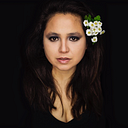The Queer Power at Eurovision
On Saturday May 20th Italy won the biggest musical competition in Europe: the Eurovision Song Contest. The level of authenticity that Italy brought to the field is what made a difference in the public voting. The bass-player of the band identifies as bisexual and even the lead-singer said he was “sexually-free”. At the previous edition Dutch winner Duncan Laurence also identified as bisexual shortly before the contest. But how come authentic acts and queer acts stand out in the crowd? And how does that affect Eurovision? Let’s put some facts into perspective.
The Eurovision Song Contest was founded shortly after World War II by seven countries: Belgium, West Germany, Luxembourg, Switzerland, France, Italy and the Netherlands. The main aim was to reconnect with European countries after the war. As the competition grew bigger, more and more countries entered the competition. By the time the 50th edition was held in 2005, about 39 countries participated. From then onwards it has been a steady number around 40 entries every year. Occasionally countries would protest or simply would not have the budget to join the competition. But when did the competition became a queer safe-space?
Well, that happened gradually. Paul Oscar became the contest’s first openly gay artist when he represented Iceland at the 1997 contest. A year later Dana International was the first trans woman to win Eurovision for Israel. From then onwards the contest hosted many members of the LGBTQ+ community. Marija Šerifović was the first lesbian winner back in 2007, but only came out openly in 2013. One of the big ones that made headlines was Conchita Wurst, the first drag persona and openly gay artist to win the contest for Austria in 2014. And as mentioned before, in recent years both Duncan Laurence and the newest winner Måneskin are queer artists. However, not only on stage the LGBTQ+ community is visible.
The Eurovision Song Contest has always been a safe-space for artists to express themselves. And the same goes for the audience that views it. The biggest ‘minority’ where openly expressing one selves is a big part of the community, is most definitely the queer community. “If you can’t love yourself, how the hell are you going to love someone else?”, an iconic quote from RuPaul and pretty much the anthem that queer people live by. Eurovision is no exception to that. The bigger, the better is usually the concept for the artists that enter the competition. For some audience members that might not always fall under their likings, but the queer community embraces it. And this is probably why Eurovision is always very dominant when it comes to show elements.
In this year’s Eurovision the LGBTQ+ community was strongly represented. First of all, Nikkie de Jager (NikkieTutorials) was the first trans woman to present the contest and what a great performance she delivered. She even wore a dress with the trans flag colors in the semi-final to pay her tribute to the community. Second of all, besides the winner, Lesely Roy of Ireland, Jeangu Macrooy and his twin-brother from the Netherlands and Gjon’s Tears of Switzerland are all openly queer artists. And even Tusse from Sweden who does not believe in labels, definitely falls under the queer umbrella. Which made this year’s competition another diverse and inclusive year.
Okay, so the artists are queer, the audience are queer, the presenters are queer but what about the songs? While Rise Like A Phoenix was a big anthem for the queer community, not all themes are fully accepted by the EBU (European Broadcasting Union). Political themes and hate related topics are pretty much always rejected as an entry for the competition. This year Belarus got disqualified for having a political propaganda song as their entry. However, LGBTQ+ themes are mostly encouraged. Back in 1961 Luxembourg won with the song Nous Les Amoureux. The singer Jean-Claude Pascal later confirmed the song reffered to a homosexual relationship. Undoubtably, the early 1960s were not a great time to express homosexual relationships.
Nowadays most songs have an empowerment message in them. Even when their home countries don’t approve of the particular message, artists still speak up. This year Russia’s Manizha with her song Russian Woman sparked some resistance from her home country. Manizha is also a strong supporter of the LGBTQ+ community and received several hate and death threats in her home country because of it. The same happened in Israel when Dana International won the competition in 1998. Even though it’s 23 years apart, it shows how much the platform that is Eurovision, is needed for the queer community.
The Eurovision Song Contest accepts everyone for who they are and embraces everyone that are ‘different’ than the ‘normal’ society. Whether you are screaming of joy at the television during the contest or you are an artist who sings a strong message, Eurovision brings everyone together. The quirkiness, the strong diva’s vocals and the show elements is what make Eurovision a great show. A show that we should always appreciate, because it brings out the best out of people. Especially people that don’t feel like there’s a platform for them in their home countries, they do have a voice at the Eurovision Song Contest. So, next year in May 2022 in Italy pay attention to the messages, the audience, the show elements and everything in between. It is the Queer power that speaks up and inspires millions of people every year.

